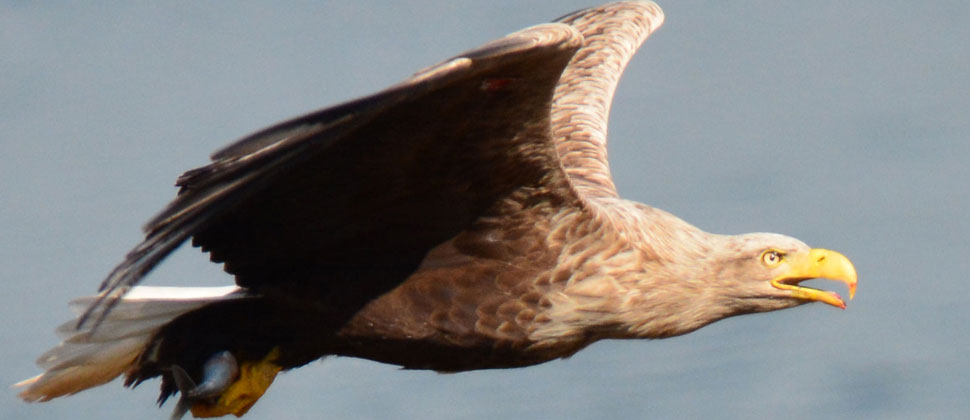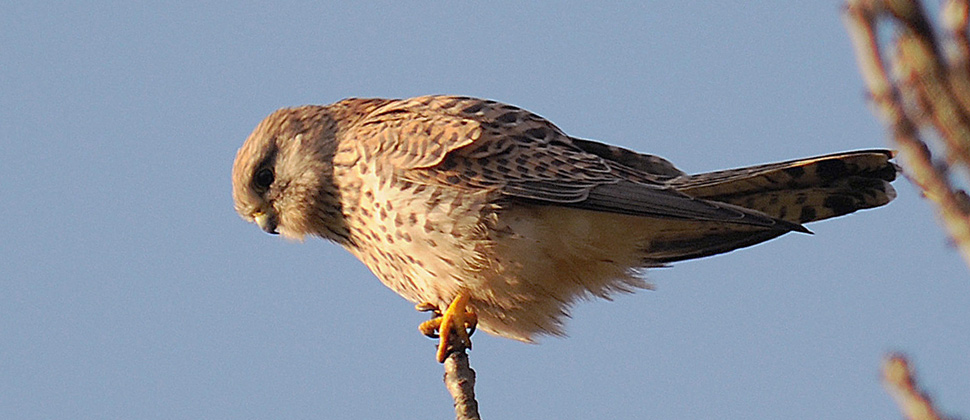2 December 2013
RSPB Scotland has today welcomed a decrease in the number of birds reported poisoned in Scotland last year, but has stressed that the illegal killing of birds of prey is still continuing at ‘wholly unacceptable levels’ in some parts of Scotland.
The annual report, entitled The Illegal Killing of Birds of Prey in Scotland in 2012, revealed that some of our rarest species including golden eagles, goshawks, short-eared owls and hen harriers were amongst the victims of human persecution discovered last year. Now in its 19th year of publication, the report provides a consistent recording benchmark on levels of crimes impacting Scotland’s iconic birds of prey.
Whilst the conservation charity has welcomed a decline in confirmed detected poisoning cases compared to previous years, evidence suggests that other forms of illegal killing such as shooting, trapping and nest destruction continue to exact a heavy toll on these vulnerable and protected species.
There were seven confirmed incidents of illegal poisoning, killing or targeting birds of prey in 2012, as well as a further thirteen confirmed incidents of other forms of killing or attempted killing.
In particular, the report highlights three specific cases of crimes against golden eagles – one bird found shot in Dumfries and Galloway; one trapped in Angus; and one poisoned in the Highlands. These deaths were greeted with almost universal public condemnation.
The annual document also draws attention to suspected cases of illegal killing of birds of prey including the destruction of nests or eggs and the disappearance of a number of birds of prey fitted with satellite transmitters, part of scientific research to look at their movements and survival.
As in recent years, the majority of reported incidents or suspected incidents of illegal killing took place in areas managed for driven grouse shooting, particularly in the eastern and central Highlands and the southern Uplands of Scotland.
Stuart Housden, RSPB Scotland Director said “We applaud the continued focus on tackling raptor persecution by the Scottish Government, but much remains to be done. We also welcome the decline in illegal poisoning; however if those who wish harm to our country’s birds of prey simply turn to other forms of persecution, such as shooting or trapping, then there is little to celebrate. The deaths of these golden eagles are particularly appalling, given that the golden eagle was recently voted the nation’s favourite species in the SNH poll for the Year of Natural Scotland. We call for a new look at how the full rigour of the law can be applied in cases of raptor persecution to act as a meaningful deterrent to those considering illegal activity of this type. These crimes have no place in 21st century Scotland, and responsible land managers must make that clear to all partners”.
Ian Thomson, RSPB Scotland’s Head of Investigations added: “Again, most of these crimes were discovered purely by chance, by local residents, walkers or birdwatchers, in remote areas of countryside, so we thank the public for their continued vigilance.
“From the cases outlined in this report, it is clear that a significant number of individuals still flout the laws protecting our native birds of prey. We accept that legal predator control of foxes and crows, alongside appropriate habitat management can have conservation benefits for some ground nesting birds. But we need our moors to be managed sustainably, in ways that are not narrowly focussed on ever-increasing grouse bags, and this includes giving a home to the raptors which should occur on these moors. It is only when species like the hen harrier and golden eagle are breeding successfully and regularly in such areas that we can be confident that bird of prey persecution is truly declining”.
The report is available for download here





